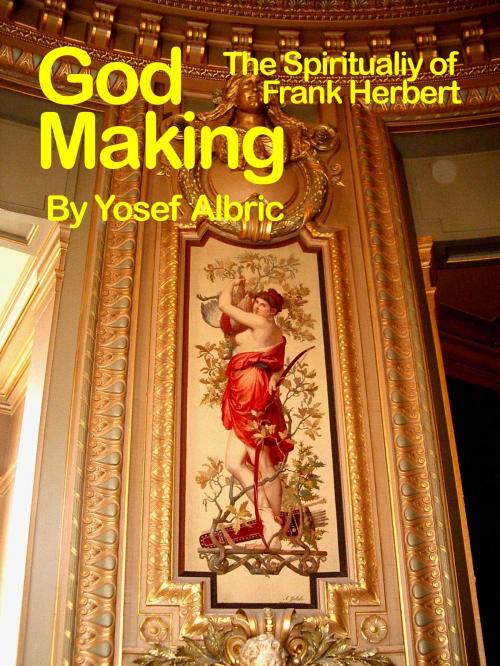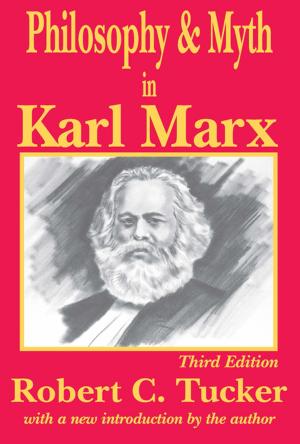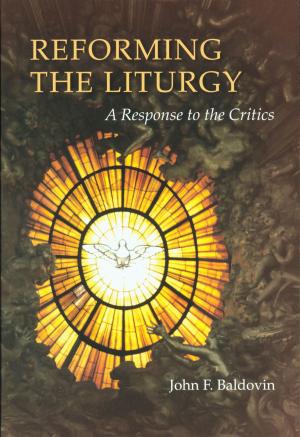Godmaking. The Spirituality of Frank Herbert
Nonfiction, Religion & Spirituality, Inspiration & Meditation, Spirituality| Author: | Yosef Albric | ISBN: | 9781310186875 |
| Publisher: | Yosef Albric | Publication: | September 29, 2014 |
| Imprint: | Smashwords Edition | Language: | English |
| Author: | Yosef Albric |
| ISBN: | 9781310186875 |
| Publisher: | Yosef Albric |
| Publication: | September 29, 2014 |
| Imprint: | Smashwords Edition |
| Language: | English |
Frank Herbert was a writer of science fiction. Some of epic proportions such as the Dune series and other little books that seem to be just little books that could be found in any corner store. They were almost insignificant in nature.
I see Frank Herbert as a very spiritual writer who hid his spiritual message within the books in a way that gave the message without appearing to give the message. It was such a subtle technique that it was a while before I noticed the significance of the way he opened each chapter.
Frank Herbert’s lessons, if that was his intent, was not the normal spiritual lessons that our found in the standard form of spiritual teaching. It is a unique form of spirituality and in many ways rather hard line. It is tinged with a logic that I find appealing. In this commentary I have written from my understanding and never claim that I can read the mind of Frank Herbert. We have commonalities in our understanding and I hope that is enough to get close to Frank Herbert’s intent. It does seem Frank Herbert did have a unique and deep understanding of spirituality.
Each chapter in most books written by Frank Herbert begins with a quotation, usually from some fictitious source that gives the lesson of the chapter. The chapter then continues the story, but at the same time illustrates the spiritual lesson.
To say ‘each chapter’ is not exactly true. Frank Herbert does divide his books into chapters but they are not usually labelled chapters. The quotations themselves form the chapter markers and the books are a continuum. It is like a spiritual sermon followed by a parable that follows on from the parable before with the individual parables forming a compete story. From here I will call then sections rather than chapters because they are more akin to sections within a continuous dialog. In this book I am taking the section heading quotes from Frank Herbert’s books and relating them to spiritual understanding.
Although the logical place to start would be Dune but instead I am starting with one of Frank Herbert’s’ lesser known books, The Godmakers. The reason is that in The Godmakers the spirituality is much closer to the surface and less esoteric than ‘Dune’ or Frank Herbert’s other books.
The copy I have has a cover that is typically 1970’s style trashy science fiction. The cover picture is of a naked nubile coloured lady on her knees in the middle of a cracked desert setting and a futuristic town in the far distance. Like other science fiction books of the time the cover has nothing to do with the contents.
There is nothing to suggest spirituality on the cover of the book and I only read it because I like Frank Herbert’s writing. If you are looking for a book with deep spiritual meaning ignore the cover and read The Godmakers.
Also there is the question of political correctness. Frank Herbert uses the masculine in all his quotes. He was writing at a time before He/She or alternate chapter genders. Also the language has changed in the past fifty years so parts of his quotes may seem sexist or old fashioned. It is a indication of the times. In keeping with Frank Herbert’s style I will not use chapters but use the Quotations as section markers. I hope you enjoy my interpretation of The Godmakers.
Frank Herbert was a writer of science fiction. Some of epic proportions such as the Dune series and other little books that seem to be just little books that could be found in any corner store. They were almost insignificant in nature.
I see Frank Herbert as a very spiritual writer who hid his spiritual message within the books in a way that gave the message without appearing to give the message. It was such a subtle technique that it was a while before I noticed the significance of the way he opened each chapter.
Frank Herbert’s lessons, if that was his intent, was not the normal spiritual lessons that our found in the standard form of spiritual teaching. It is a unique form of spirituality and in many ways rather hard line. It is tinged with a logic that I find appealing. In this commentary I have written from my understanding and never claim that I can read the mind of Frank Herbert. We have commonalities in our understanding and I hope that is enough to get close to Frank Herbert’s intent. It does seem Frank Herbert did have a unique and deep understanding of spirituality.
Each chapter in most books written by Frank Herbert begins with a quotation, usually from some fictitious source that gives the lesson of the chapter. The chapter then continues the story, but at the same time illustrates the spiritual lesson.
To say ‘each chapter’ is not exactly true. Frank Herbert does divide his books into chapters but they are not usually labelled chapters. The quotations themselves form the chapter markers and the books are a continuum. It is like a spiritual sermon followed by a parable that follows on from the parable before with the individual parables forming a compete story. From here I will call then sections rather than chapters because they are more akin to sections within a continuous dialog. In this book I am taking the section heading quotes from Frank Herbert’s books and relating them to spiritual understanding.
Although the logical place to start would be Dune but instead I am starting with one of Frank Herbert’s’ lesser known books, The Godmakers. The reason is that in The Godmakers the spirituality is much closer to the surface and less esoteric than ‘Dune’ or Frank Herbert’s other books.
The copy I have has a cover that is typically 1970’s style trashy science fiction. The cover picture is of a naked nubile coloured lady on her knees in the middle of a cracked desert setting and a futuristic town in the far distance. Like other science fiction books of the time the cover has nothing to do with the contents.
There is nothing to suggest spirituality on the cover of the book and I only read it because I like Frank Herbert’s writing. If you are looking for a book with deep spiritual meaning ignore the cover and read The Godmakers.
Also there is the question of political correctness. Frank Herbert uses the masculine in all his quotes. He was writing at a time before He/She or alternate chapter genders. Also the language has changed in the past fifty years so parts of his quotes may seem sexist or old fashioned. It is a indication of the times. In keeping with Frank Herbert’s style I will not use chapters but use the Quotations as section markers. I hope you enjoy my interpretation of The Godmakers.















